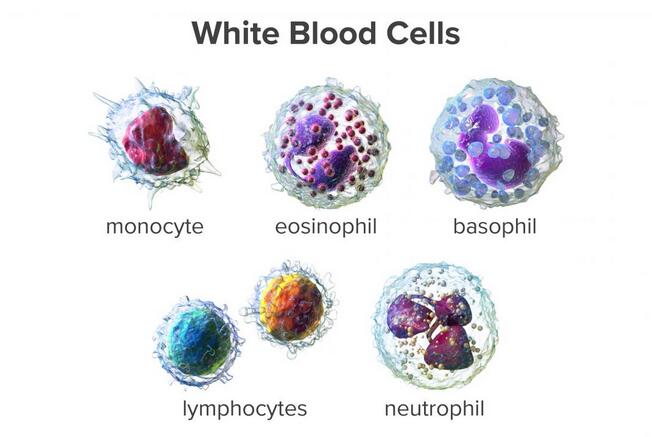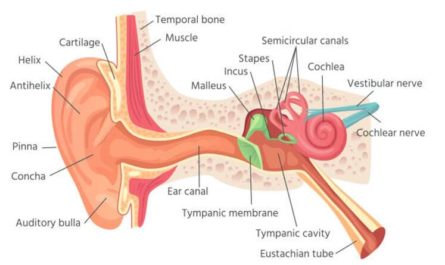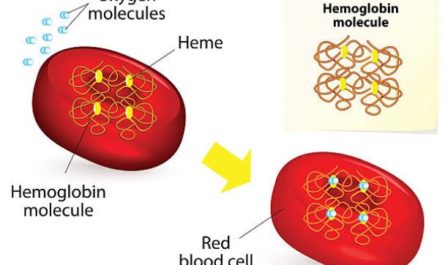A low white blood cell count, also known as leukopenia, can be a concerning health condition. White blood cells protect the body from harmful pathogens, viruses, and bacteria that can cause severe illness. When the white blood cell count drops below normal levels, it can leave the body vulnerable to infections, making it more challenging to recover from illnesses. If left untreated, it can lead to severe health complications. This article explores the causes, symptoms, and treatment options for low white blood cell count.
What Are White Blood Cells?
White blood cells, also known as leukocytes, are a vital part of the immune system. They are responsible for fighting off infections, pathogens, and foreign substances that enter the body. There are different types of white blood cells, each with specific functions in the immune response. These include:
- Neutrophils: These are the most common type of white blood cells and play a crucial role in fighting bacterial infections.
- Lymphocytes: They are responsible for recognizing and attacking specific pathogens. There are two types of lymphocytes: B cells and T cells.
- Monocytes: They help remove dead cells and debris from the body.
- Eosinophils: These cells are involved in fighting parasitic infections and allergic reactions.
- Basophils: They release chemicals that contribute to the body’s inflammatory response.
What is a low white blood cell count?
Although the number of white blood cells varies from person to person, the normal range is usually between 4,000 and 10,000 per microliter of blood. A WBC count of less than 4,000 per microliter (3,500 or 4,500 in some laboratories) represents A low white blood cell count.
Of course, the WBC count also varies with age and gender; some people naturally have a low WBC count. However, long-term low white blood cell count indicates that your body may be unable to fight infection effectively.
Symptoms and Signs of Low White Blood Cell Count
A low white blood cell count can manifest through various symptoms, which may vary depending on the underlying cause and severity of the condition. Common symptoms of low white blood cell count include:
- Frequent Infections: Individuals with leukopenia are more susceptible to infections, including respiratory tract infections, urinary tract infections, skin infections, and oral infections. These infections may occur more frequently, be more severe, and take longer to resolve.
- Slow Healing Wounds: White blood cells play a crucial role in the healing process. With a low white blood cell count, wounds may take longer to heal. The body’s ability to fight off bacteria and prevent infection at the wound site is compromised, leading to delayed healing.
- Fatigue and Weakness: Persistent fatigue and weakness may result from a compromised immune system. White blood cells are essential for maintaining overall health and vitality. When their numbers decrease, the body’s ability to fight off infections and maintain optimal energy levels is affected.
- Fever and Chills: Infections can lead to fever and chills, especially when the body’s immune response is weakened. Fever is the body’s natural response to infection, indicating that the immune system is actively fighting off the invading pathogens.
- Other Related Symptoms: Additional symptoms may include sore throat, mouth ulcers, swollen lymph nodes, unexplained weight loss, and recurring respiratory infections.
It is important to note that not everyone with a low white blood cell count will experience symptoms. In some cases, the condition may be detected during routine blood tests or investigations for unrelated health concerns.
How is low white blood cell count diagnosed?
A low white blood cell count, or leukopenia, can be diagnosed through a complete blood count (CBC) test. This test measures the number of red blood cells, white blood cells, and platelets in the bloodstream. If the number of white blood cells is lower than normal, it may indicate leukopenia.
In some cases, additional tests, such as a bone marrow biopsy, may be necessary to determine the underlying cause of the low white blood cell count. These tests may include a physical exam, medical history review, and other blood tests.

8 Common Causes of Low White Blood Cell Count(Leukopenia)
Some common causes of low white blood cell counts include:
1. Bone Marrow Disorders
The bone marrow is responsible for producing white blood cells. Any disorder affecting the bone marrow can disrupt the normal production of WBCs, leading to a low white blood cell count. Conditions such as aplastic anemia, leukemia, and myelodysplastic syndromes can all decrease white blood cell production.
2. Infections
Severe infections, particularly those affecting the bone marrow or the organs responsible for white blood cell production, can cause a temporary decline in white blood cell count. Conditions like HIV/AIDS, tuberculosis, and viral hepatitis can suppress the bone marrow, impacting WBC production.
3. Medications and Treatments
Certain medications, such as chemotherapy drugs, can directly impact the bone marrow, reducing the production of white blood cells. Radiation therapy, commonly used to treat cancer, can also affect the bone marrow, leading to a low WBC count.
4. Autoimmune Disorders
Autoimmune disorders occur when the immune system mistakenly attacks healthy cells and tissues. Some autoimmune disorders, such as lupus and rheumatoid arthritis, can affect the bone marrow’s ability to produce adequate white blood cells.
5. Nutritional Deficiencies
Proper nutrition is vital for maintaining optimal blood cell health. Deficiencies in key nutrients, including vitamin B12, folate, and copper, can lead to low white blood cell count.
These nutrients are necessary for the production and maturation of WBCs, and their absence can impair the immune system.
6. Congenital Disorders
In rare cases, individuals may have congenital disorders that affect the production or function of white blood cells. Examples include severe combined immunodeficiency (SCID) and cyclic neutropenia. These conditions are usually detected early in life and require specialized medical care.
7. Chemotherapy and Radiation Therapy
While these treatments are essential for combating cancer, they can also affect the bone marrow and white blood cell production. Chemotherapy drugs can suppress the bone marrow, leading to a decrease in white blood cell count. Similarly, radiation therapy can damage the bone marrow, affecting WBC production.
8. Certain Cancers
Some types of cancer, such as leukemia and lymphoma, directly affect the bone marrow’s ability to produce white blood cells. As cancer cells multiply and crowd out healthy cells in the bone marrow, the production of WBCs can be significantly reduced.

Low White Blood Cell Count Treatment
One of the primary approaches in managing leukopenia is to identify and treat the underlying cause. Different conditions can lead to low white blood cell count. Addressing the specific condition can help improve white blood cell count over time. Treatment options may include:
1. Bone Marrow Disorders
In cases where bone marrow disorders are responsible for leukopenia, treatment approaches can involve medications, blood transfusions, or stem cell transplantation. These interventions aim to improve the production and function of white blood cells.
2. Autoimmune Conditions
For autoimmune conditions contributing to low white blood cell count, treatment focuses on managing the autoimmune response and suppressing the immune system. Immunosuppressive medications, such as corticosteroids or disease-modifying antirheumatic drugs (DMARDs), may be prescribed to reduce immune activity and prevent further destruction of white blood cells.
3. Infectious Diseases
Treating underlying infections is crucial in managing leukopenia related to infectious diseases. Antiviral medications, antibiotics, or other targeted therapies may be prescribed to eradicate the infection and allow the immune system to recover.
4. Cancer Treatments
If chemotherapy or radiation therapy is causing low white blood cell count, your healthcare provider may adjust the treatment regimen or provide medications to stimulate white blood cell production. Specific medications, such as granulocyte colony-stimulating factor (G-CSF), can help boost white blood cell counts and reduce the risk of infections.
5. Nutritional Deficiencies
Nutritional deficiencies, particularly of vitamins and minerals essential for white blood cell production, can contribute to leukopenia. In such cases, dietary changes and supplementation under the guidance of a healthcare provider or registered dietitian may help restore white blood cell levels.
6. Medications
If medications are the cause of low white blood cell count, your healthcare provider may explore alternative medications or adjust dosages to minimize their impact on white blood cell production. However, this decision should be made in consultation with your healthcare provider to ensure appropriate management of your underlying condition.
It is crucial to work closely with your healthcare provider to determine the most suitable treatment plan based on your specific diagnosis and overall health.
Medications to Stimulate White Blood Cell Production
In some cases, healthcare providers may prescribe medications to stimulate the production of white blood cells. These medications can help increase white blood cell counts and reduce the risk of infections.
The most common medication used for this purpose is granulocyte colony-stimulating factor (G-CSF). G-CSF is a naturally occurring protein that promotes the growth and maturation of white blood cells in the bone marrow.
G-CSF can be administered as an injection under the skin or intravenously, depending on the specific circumstances and treatment goals. The dosage and frequency of administration will be determined by your healthcare provider based on your individual needs.
It is important to note that medication therapy should be closely monitored by your healthcare provider to ensure appropriate response and minimize potential side effects.
Dietary and Lifestyle Changes
Maintaining a healthy lifestyle and making dietary changes can play a significant role in supporting immune function and optimizing white blood cell production. Consider the following strategies:
1. Balanced Diet
A well-balanced diet rich in fruits, vegetables, whole grains, lean proteins, and healthy fats provides essential nutrients necessary for white blood cell production. Focus on incorporating immune-boosting foods like citrus fruits, berries, leafy greens, garlic, ginger, yogurt, nuts, and seeds into your meals.
2. Adequate Hydration
Staying well-hydrated helps support overall immune function. Aim to drink enough water throughout the day to maintain proper hydration.
3. Regular Exercise
Engaging in regular physical activity can enhance immune function and improve blood circulation, allowing white blood cells to move more freely throughout the body. Aim for at least 150 minutes of moderate-intensity aerobic exercise or 75 minutes of vigorous-intensity exercise per week, as recommended by health guidelines.
4. Sufficient Sleep
Prioritize quality sleep to support immune health. Aim for 7-9 hours of uninterrupted sleep each night.
5. Stress Management
Chronic stress can negatively impact immune function. Incorporate stress management techniques such as meditation, deep breathing exercises, yoga, or engaging in hobbies or activities that help promote relaxation and reduce stress levels.
6. Smoking Cessation
Smoking compromises immune function and increases the risk of infections. Quitting smoking can significantly improve overall health and support immune system recovery.
White Blood Cell Transfusions
In severe cases of low white blood cell count, where the immune system is significantly compromised or there is a high risk of life-threatening infections, white blood cell transfusions may be considered.
During this procedure, white blood cells from a healthy donor are transfused into the recipient’s bloodstream to supplement or replace their own deficient white blood cells.
White blood cell transfusions are typically reserved for critical situations and are performed under the supervision of experienced healthcare professionals. The decision to proceed with a white blood cell transfusion will depend on various factors, including the severity of leukopenia, the presence of life-threatening infections, and individual patient considerations.
Regular Monitoring and Follow-up
Managing low white blood cell count requires ongoing monitoring and follow-up with your healthcare provider. Regular blood tests will help assess the effectiveness of treatment and determine if any adjustments are necessary. The frequency of blood tests will be determined by your healthcare provider based on your specific condition and treatment plan.
It is essential to communicate any changes in symptoms or concerns to your healthcare provider during follow-up appointments. This will ensure appropriate adjustments to the treatment plan and allow for prompt evaluation of any emerging issues or complications.
FAQs
1. Are there any lifestyle changes that can help improve a low white blood cell count?
Maintaining a healthy lifestyle, including a balanced diet, regular exercise, adequate sleep, and stress management, can support overall immune system health and help improve a low white blood cell count.
2. Can a low white blood cell count indicate cancer?
Yes, in some cases, a low white blood cell count may indicate the presence of certain types of cancer, such as leukemia or lymphoma. However, it is important to note that a low white blood cell count can have various causes, and further medical evaluation is necessary for an accurate diagnosis.
3. Is a low white blood cell count always a cause for concern?
While a low white blood cell count can indicate underlying health issues, not all cases are severe or require immediate medical intervention. It is essential to consult with a healthcare professional to determine the appropriate course of action based on individual circumstances.
4. Can certain foods help increase white blood cell count?
While specific foods cannot directly increase white blood cell count, consuming a balanced diet rich in vitamins, minerals, and antioxidants can support overall immune system health.
5. How long does it take for white blood cell count to return to normal?
6. When to see a doctor?
If you are experiencing symptoms of leukopenia, such as frequent infections, fever, or fatigue, it is important to see a healthcare provider. Additionally, if you have recently undergone chemotherapy or radiation therapy or been diagnosed with an autoimmune or blood disorder.






